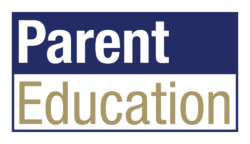 We believe that the world is ordered and knowable and that the human intellect, while imperfect, can attain knowledge of reality through reason, hard work, and a coherent program of study.
We believe that the world is ordered and knowable and that the human intellect, while imperfect, can attain knowledge of reality through reason, hard work, and a coherent program of study.
We believe that truth exists, and we must seek it relentlessly by disciplined study and good-willed conversation. Truth is never just “my truth” and “your truth;” truth itself is not subject to historical or personal conditioning or circumstances, though individuals and cultures are.
We take seriously Socrates’ assertion that “the unexamined life is not worth living” and believe education should proceed via shared inquiry and honest discussion. While aspects of our curriculum are subject to new developments in science, discoveries about our universe, and the unfolding of history, our emphasis is upon the enduring, the changeless, the permanent. We give particular emphasis to the literary and philosophical Classics of the West because of the way they speak about the universal human condition and the laws of nature.
We believe that beauty is not merely in the eye of the beholder, and that the classic forms and works of Western music, drama, and visual art should play the central role in forming aesthetic judgment.
Although we teach to a variety of learning modes, we believe the written and spoken word hold a privileged position in human expression and knowledge.
We do not dispute the usefulness of a liberal arts education, and we gladly prepare our students for college studies, but our main purpose is the formation of the soul, heart, and mind.
Liberal education consists of cognitive, emotional, and moral education—thinking deeply, loving noble things, and living well together. We believe, with Plato, that the highest goal of education is to become good, intellectually and morally.
Adapted from “Our View of Learning: Verum, Bonum, Pulchrum” found at GreatHeartsAmerica.org.